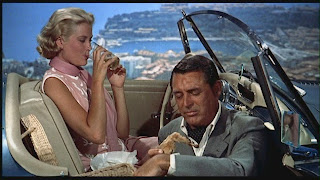 |
| Columbia Club, Indianapolis |
It might seem a bit hypocritical for me to recommend an
event that I’m not planning to attend. As
an expatriate Indianapolitan, believe me, I would if I could. I’ve been in a nostalgic mood lately and I’m
also thinking about another book in my Indianapolis-based Shanahan series.
Checking out the city’s continued metamorphosis would be helpful to the work. But there are other reasons to go to
Indianapolis. This October the city
hosts a gem of a mystery conference.
For mystery writers and readers, Magna Cum Murder is a
beautiful thing. This is not to take
away from other crime fiction conventions.
For example, there is no mystery fan gathering grander than the Mystery
Writers of America’s (MWA) annual Bouchercon, which I also highly recommend. But
this is something different. Unlike the wonderfully raucous throngs of mystery fans
at a convention hotel, Magna is designed to be a more relaxed, more intimate
event.
Whether you are an established author, want to be one, or
merely have a passion for the genre, you’ll not only have a chance to
participate in great panel discussions, but also talk face-to-face with
best-selling, award-winning authors who’ve written some of your favorite books. Among those who have already signed up:
 |
| Ryan |
Hank Phillippi Ryan
— A Hoosier by birth and currently a Bostonian, Ryan is stealing the spotlight
these days. Her latest book, The Other Woman has been nominated for
“best novel” by just about any group giving out awards, including the MWA, the
Private Eye Writers of America (PWA) and Mystery Readers International.
Terence Faherty —
Faherty was born in New Jersey, but calls himself a “naturalized” Hoosier. An Edgar
nominee and winner of two Shamus awards and a Macavity, he is the author of two
highly regarded mystery series and several prize-winning short stories. Eastward
of Eden, a new book in the Owen Keane series, has a September release date.
 |
| Faherty |
William Kent Krueger
— No stranger to the best seller lists, Minnesotan Krueger won back-to-back
Anthony Awards for Blood Hollow and Mercy Falls. The 13th in his Cork
O’Connor mystery series, Tamarack County,
will be released in August. His latest, the
standalone novel, Ordinary Grace is
on the shelves now.
Jeremiah Healy — Premier private eye writer Healy is the
author of two mystery series, both set in Boston. He has the distinction of not only winning
PWA’s Shamus Award for best P.I. Novel, but also having been nominated for the
honor an unprecedented 15 times. Many of
these classics were recently reissued.
 |
| Healy |
Parnell Hall —
Bon Vivant and entertainer as well as popular and prolific mystery writer, Hall
is a welcomed regular at Magna Cum Murder. The New Yorker is the author of the
Puzzle Lady series — if you like crosswords, Hall is a double threat — and the
highly-praised Stanley Hastings mysteries. Arsenic
and Old Puzzles and Stakeout, the
most recent books from each series, were released earlier this year.
John Gilstrap — The best selling author’s first book, Nathan’s Run, was optioned by Hollywood
as has a second book. For those
interested in books and movies, Gilstrap is a screenwriter as well. Meanwhile
the books keep coming. High Treason will be available next
month.
 |
| Krueger |
Steve Hamilton — Hamilton
writes the Alex McKnight series set in Michigan. His A Cold Day in Paradise picked up both an Edgar and Shamus for Best
First Novel. His novel, The Lock Artist, was also awarded the
Edgar and the Barry, this time for Best Novel in 2010. He lives in Upstate New York. His latest, Let It Burn, has just been released.
For many years, Magna Cum Murder was successfully held in
Muncie, Indiana at the historic Hotel Roberts.
Unfortunately, the lovely old hotel is now history. The good news is this year’s conference is being
held at a protected national historic landmark — the Columbia Club in
Indianapolis. The Club is located in the very
center of the city’s revitalized downtown.
Conference attendees will be only a few blocks from hotels, galleries,
shopping, restaurants and nightclubs.
October 25-27,2013
The Columbia Club
121 Monument Circle
Indianapolis














